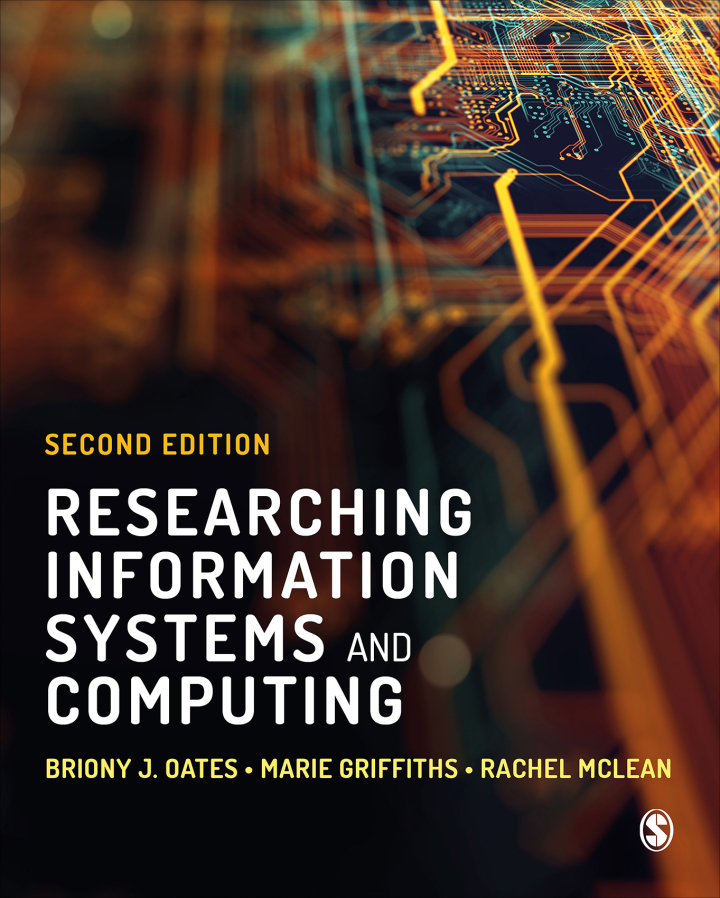
Researching Information Systems and Computing 2nd Edition
PUBLISHER: Sage
Trường ĐH, Nhóm, Thư Viện: Gọi 0915920514 để báo giá eBook hosting trên Vital Source hoặc mua Sách In
Nghiên cứu hệ thống thông tin và máy tínhĐược viết riêng cho sinh viên hệ thống thông tin (IS) và máy tính, đồng thời cung cấp mọi thứ họ cần biết về việc thực hiện một dự án nghiên cứu, cuốn sách giáo khoa bán chạy nhất này giới thiệu các phương pháp nghiên cứu định tính và định lượng quan trọng, hiểu rõ các triết lý cơ bản và giúp người đọc định hướng và đánh giá các phương pháp nghiên cứu định tính và định lượng quan trọng, hiểu rõ các triết lý cơ bản và giúp người đọc định hướng và đánh giá các bài báo học thuật. Được đóng gói với các ví dụ từ IS và các nguyên tắc máy tính, định nghĩa, hướng dẫn đánh giá và gợi ý đọc thêm, ấn bản thứ hai được cập nhật đầy đủ này của Hệ thống thông tin nghiên cứu và máy tính hỗ trợ sinh viên ở mọi cấp độ trong việc thu hẹp khoảng cách giữa lý thuyết và thực hành.
List of Figures and TablesAbout the AuthorsPrefaceAcknowledgementsList of Abbreviations1 IntroductionAims of this bookThe IS and computing disciplinesEvidence-based practiceWhat is research?Let's have an argument!Evaluating research‘I just want to develop a computer-based system'Rigour and relevance in researchThe 6Ps of researchStructure of this bookFurther readingReferences2 The Purpose and Products of ResearchReasons for doing researchPossible products – the outcomes of researchFinding and choosing research topicsEvaluating the purpose and products of researchFurther readingReferences3 Overview of the Research ProcessA model of the research processAlternative models of the research processEvaluating the research processFurther readingReferences4 The Digital ResearcherThe current digital landscapeDigital transforming researchResearch topic areasThe dos and don'ts of using online channels for your literature reviewResearch strategies and methodsLegal and ethical aspects of being a digital researcherFurther readingReferences5 Participants and Research EthicsThe law and researchRights of people directly involvedResponsibilities of an ethical researcherDesign and creation projects and ethicsResearch and ethics‘It's not that simple!'Evaluating research ethicsFurther readingReferences6 Reviewing the LiteraturePurpose of a literature reviewLiterature resourcesThe web and literature reviewsConducting a literature reviewEvaluating literature reviewsFurther readingReferences7 SurveysDefining surveysPlanning and designing surveysGrounded theory and surveysSurveys in the digital ageExamples of surveys in IS and computing researchEvaluating survey-based researchFurther readingReferences8 Design and CreationDefining design and creationPlanning and conducting design and creation researchCreative computing and digital artExamples of design and creation research in IS and computingEvaluating design and creation researchFurther readingReferences9 ExperimentsDefining experimentsPlanning and conducting experimentsThe internet and experimentsExamples of experiments in IS and computing researchEvaluating experiment-based researchFurther readingReferences10 Case StudiesDefining case studiesPlanning and conducting case studiesThe internet and case studiesExamples of case studies in IS and computing researchEvaluating case study-based researchFurther readingReferences11 Action ResearchDefining action researchPlanning and conducting action researchDevelopments in action researchThe internet and action researchExamples of action research in IS and computingEvaluating action researchFurther readingReferences12 EthnographyDefining ethnographyPlanning and conducting an ethnographyDigital ethnographyNetnographyExamples of ethnography in IS and computing researchEvaluating ethnography-based researchFurther readingReferences13 InterviewsDefining interviewsPlanning and conducting interviewsGroup interviewsOnline interviewsExamples of interviews in IS and computing researchEvaluating interview-based researchFurther readingReferences14 ObservationsDefining observationsPlanning and conducting systematic observationPlanning and conducting participant observationThe digital observerExamples of observations in IS and computing researchEvaluating observation-based researchFurther readingReferences15 QuestionnairesDefining questionnairesPlanning and designing questionnairesExamples of questionnaires in IS and computing researchEvaluating questionnaire-based researchFurther readingReferences16 DocumentsDefining documentsPlanning and conducting document-based researchDigitally-based documentsExamples of documents in IS and computing researchEvaluating document-based researchFurther readingReferences17 Quantitative Data AnalysisDefining quantitative data analysisTypes of quantitative dataData codingVisual aids for quantitative data analysisUsing statistics for quantitative data analysisInterpretation of data analysis resultsEvaluating quantitative data analysisFurther readingReferences18 Qualitative Data AnalysisDefining qualitative data analysisAnalysing textual dataAnalysing non-textual qualitative dataGrounded theoryComputer-aided qualitative analysisEvaluating qualitative data analysisFurther readingReferences19 Philosophical Paradigms – Positivism‘Do I have to study this philosophical stuff?'Positivism and the scientific methodCharacteristics of positivismCriticisms of positivismEvaluating positivist researchFurther readingReferences20 Alternative Philosophical ParadigmsInterpretivismCharacteristics of interpretivismCritical researchCharacteristics of critical researchLinking research strategies to philosophical paradigmsWhich paradigm to choose?Evaluating interpretive and critical researchFurther readingReferences21 Presentation of the ResearchWriting up the researchConference paper presentationsPosters and exhibitionsSoftware demonstrationsPresenting yourselfPhD vivasEvaluating and critiquing presentationsFurther readingReferencesFinal WordsIndex















